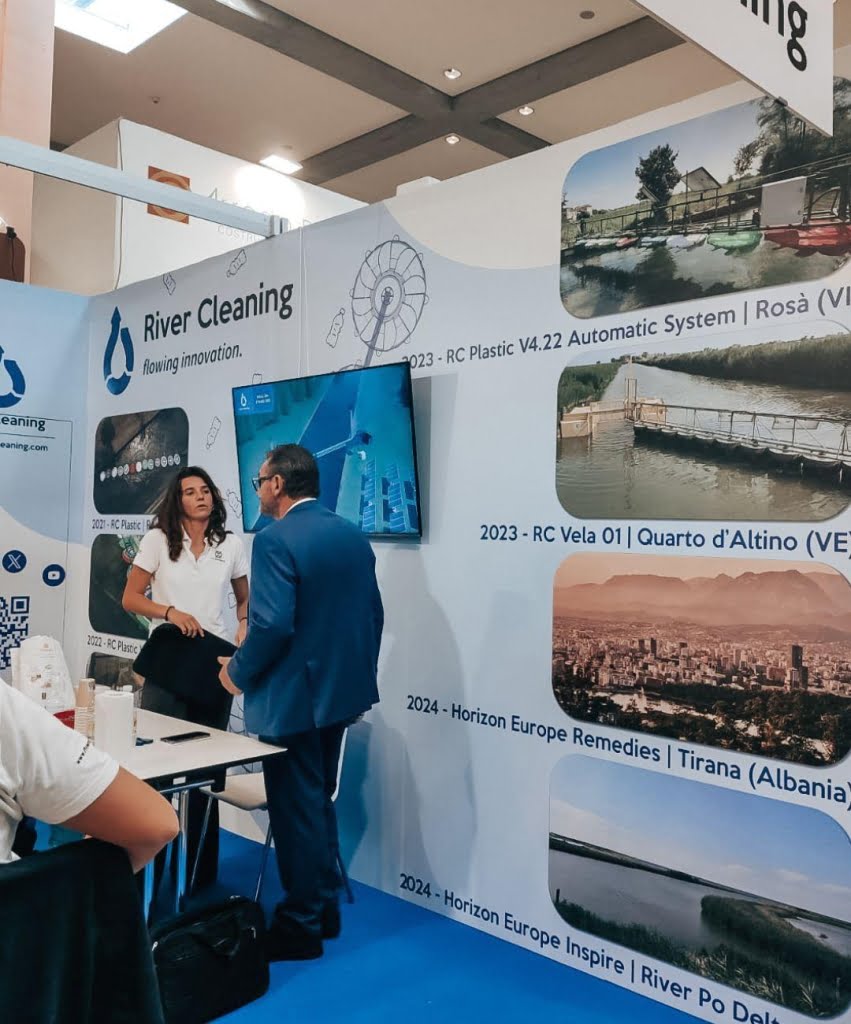23 partners from 12 different countries, 60 representatives and more than 20 stakeholders gathered on Jan. 10 and 11 to kick off the REMEDIES project, planning the actions to be taken to implement pathways for plastic waste prevention and valorization.

REMEDIES is a Horizon Mission program co-financed by the European Commission aimed at co-creating solutions for the future of our oceans through the use of pathways for the prevention and enhancement of plastic waste. The overall goal of Remedies is to establish a disposition for plastic prevention utilizing both traditional and modern media. With the aid of citizen science, fostering co-creation in participatory processes, REMEDIES aims to build a society more aware of plastic: by monitoring and collecting plastic waste and, foremost, preventing waste generation.
The National Institute of Chemistry (NIC) in Slovenia, as the consortium coordinator, has guided the content and facilitated the initial meeting of this ambitious innovative action project. The meeting was dedicated to introducing the partners and the project theme from a local, European, and global perspective. The agenda emphasized the collective actions of the group, achievements, results, and the expected impact for the next four years.
DAY ONE:
On the first day, at the Grand Koper hotel on the Slovenian coast, Dr. Uroš Novak, Coordinator of REMEDIES, and Dr. Vesna Kuralt, Project Manager of REMEDIES, both from the National Institute of Chemistry, presented the main pillars and principles of REMEDIES to the press representatives during a roundtable. During the roundtable, Dr. Barbara Tišler, head of the project office at NIC, and Dr. Jerneja Jug Jerše, head of the EC representation office in Slovenia, emphasized the importance of developing concrete solutions locally, leveraging the knowledge and expertise of Europe.
This was followed by a group visit to the DEMO site at the Koper marina, led by Hakim El Khiar and Kostja Klabjan of Clera.One, one of the solution providers, along with Dr. Annamaria Vujanović from the University of Maribor, and Mr. Alen Jakopin, director of the Marina. Participants were introduced to innovative filtration technology – a small-scale prototype for microplastic removal that will be applied to an underwater drone equipped with a camera to detect microplastic particles – and a circular water reuse system for boat washing at the Koper Marina. These and other solutions will be developed by 2025 and subsequently replicated at seven other demonstration sites in the Mediterranean.
In the afternoon, a roundtable discussion took place, involving leaders from the public sector, industry, and civil society. The theme discussed was: “A plastic-free lifestyle: utopia or the future?”. Video documentation of the event is available here: (https://youtu.be/YCUdQx6po5M).
This was followed by a series of stimulating interventions addressing the following topics: microplastics, Zero Waste, and prevention of plastic waste.
The day concluded with a networking session and a dynamic presentation by all partners, exchanging personal opinions and organizational approaches on how to contribute to the protection of our ecosystems, the challenges to be faced, and the envisioned opportunities. At the end of the evening, during an #Open-end event, rapper Masayah from Koper presented her compelling blend of art, music, and words, addressing urgent personal and social issues. Like science, music is a powerful tool for advancing social and political reforms.
DAY TWO:
The next day began with a kickoff meeting attended by all 23 project partners. Silvia Vaghi from CINEA (European Agency for Climate, Infrastructure, and Environment), coordinator and project manager, provided an overview of the objectives and ambitions of REMEDIES.
Subsequently, the work package managers discussed the tasks, project objectives, and planned activities with the consortium. The team outlined all expected outcomes of the Horizon Europe Mission OCEAN&WATERS and defined key aspects of REMEDIES implementation. These include:
- Plastic waste monitoring (WP1 led by the National Institute of Chemistry)
- Plastic waste collection (WP2 led by Clera.one)
- Circular solutions for the prevention of plastic waste (WP3 led by Alchemia Nova Greece)
- Sustainability assessment and optimization of implemented measures (WP4 led by the University of Maribor)
- Scaling and replication (WP5 led by F6S)
- Community engagement, outreach, and communication (WP6 led by Impact Hub Athens)
The presentation was connected to an interactive workshop where all partners, both present and online, developed analyses and proposals on stakeholder mapping, keywords, messages, and slogans that the consortium will use to reinforce the mission of REMEDIES.
F6S and Impact Hub Athens collected the data arising from the group brainstorming. The conclusions were noted, integrated, and shared with all partners as a follow-up to the kickoff meeting, serving as an important guide for the utilization, communication, outreach, and community engagement plan of REMEDIES.
The REMEDIES kickoff day concluded with an overview of project management (WP7 led by NIC) and a final Q&A session with the coordinating team and project manager.
REMEDIES aims to create a movement, gradually transitioning from individuals and organizations to the collective. By involving all stakeholders who want to contribute to a plastic-free ecosystem, we come together to form a community and change our habits. Join us!
Twitter: https://twitter.com/remedies_eu
LinkedIn: https://www.linkedin.com/company/remedies-eu
Facebook: https://www.facebook.com/remedies.eu

